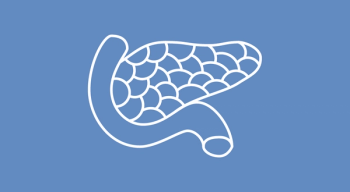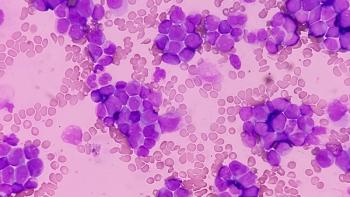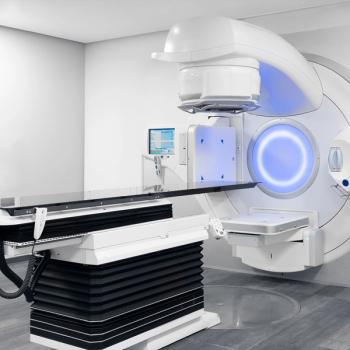
The FDA has approved ziftomenib for relapsed or refractory acute myeloid leukemia harboring NPM1 mutations with no alternative treatment options.
Bridget Hoyt is the assistant editor for Oncology Nursing News. She earned her BA in communication studies at Rider University with a minor in public relations. She can be reached at bhoyt@mjhlifesciences.com.

The FDA has approved ziftomenib for relapsed or refractory acute myeloid leukemia harboring NPM1 mutations with no alternative treatment options.

Kristi Orbaugh, MSN, RNP, AOCN, AOCNP, shared the key toxicities of each CDK4/6 inhibitor and how to monitor for them.

The FDA has approved subcutaneous daratumumab and hyaluronidase-fihj for use in patients with high-risk smoldering multiple myeloma.

An oncology APP-led quality assurance committee identified key safety events across disciplines and specialties.

Daniel Glidden, MS, PA-C, discusses key data oncology APPs should be aware of and how to start incorporating exercise in cancer care.

Dermatitis and lymphedema are among the most pertinent adverse effects of radiation to the breast, according to Alexa M. Lantz, MSPAS, PA-C.

La-Urshalar Brock, FNP-BC, CNM, describes tactics for managing dermatologic AEs in patients with breast cancer as part of a multidisciplinary care team.

A multisite advanced practice optimization model improved patient access through tailored interventions, including redistributing non-APP responsibilities.

BCMA-targeting ADC belantamab mafodotin was approved for use in patients with relapsed/refractory multiple myeloma after 2 or more lines of treatment.

Data from a large prospective study identified male and older patients as being more likely to develop CIP and 34% of cases to become chronic.

Adding zabilugene almadenorepvec to SOC chemotherapy and nab-paclitaxel was safe and effective in patients with metastatic pancreatic ductal adenocarcinoma.

A preliminary analysis of a prospective study of patients with solid tumors identified subgroups at risk of depressive symptoms via patient-report outcomes.

Patient-reported outcomes showed that health-related QOL stayed at baseline for patients with HRRM-positive mHSPC receiving a niraparib regimen.

Chemo-induced myelosuppression can affect patients’ ability to do daily tasks, and management varies by patient, treatment regimens, locations, and more.

The FDA has granted approval to adjuvant cemiplimab treatment for patients with high-risk cutaneous squamous cell carcinoma after surgery and radiation.

A network to connect patients with unused medications with patients in need brought $18 million of free cancer medication while reducing drug waste.

Heather J. Jackson, PhD, APRN, FNP-BC, NEA-BC, FAA-NP, shared a review of supportive oncology practices at the 2025 School of Nursing Oncology.

The FDA has approved lurbinectedin plus atezolizumab for the treatment of extensive-stage small cell lung cancer following induction therapy with atezolizumab.

An LED-based intraoral device for photobiomodulation therapy was safe and reduced severe oral mucositis in patients with head and neck cancers.

The FDA has approved imlunestrant for the treatment of patients with ESR1-mutated ER+, HER2- metastatic breast cancer.

Revumenib was added to NCCN guidelines for relapsed or refractory NPM1-mutated acute myeloid leukemia.


Subcutaneous pembrolizumab has been approved across all indications, cutting chair and administration times with a median injection time of 2 minutes.

Michelle Kirschner, MSN, RN, ACNP, APRN-BC, discusses precision supportive care and tailored survivorship strategies in an ONN interview.

Explore stories of oncology nurses who forge connections with patients, transforming challenges into triumphs in cancer care.

When treating patients with bladder cancer using gemcitabine intravesical system, regular AE monitoring is necessary, said Gary Steinberg, MD.

Relacorilant’s new drug application for platinum-resistant ovarian cancer has been accepted by the FDA.

Formerly known as TAR-200, gemcitabine intravesical system has received the FDA’s approval for use in patients with BCG-unresponsive NMIBC.

Biology-guided radiotherapy involves teamwork across multiple specialists, according to Samantha Bianzon, BSN, RN.

Ronald Bleday, MD, discusses how nurses support a step-wise model to minimize opioid use after colorectal surgery while ensuring safe pain control.